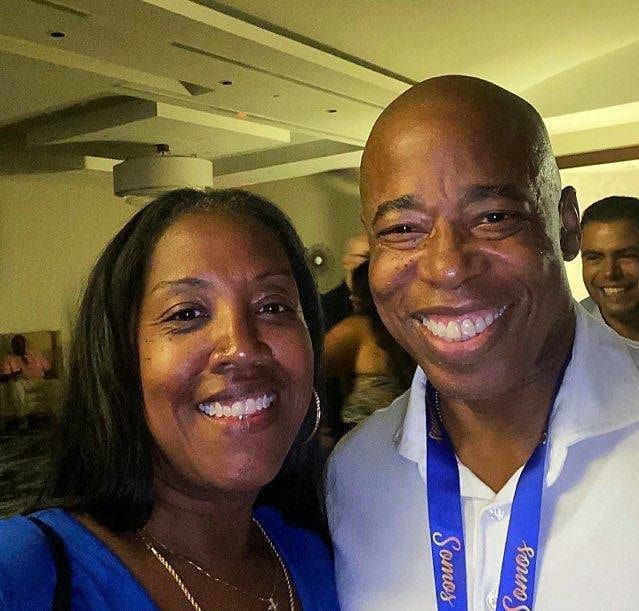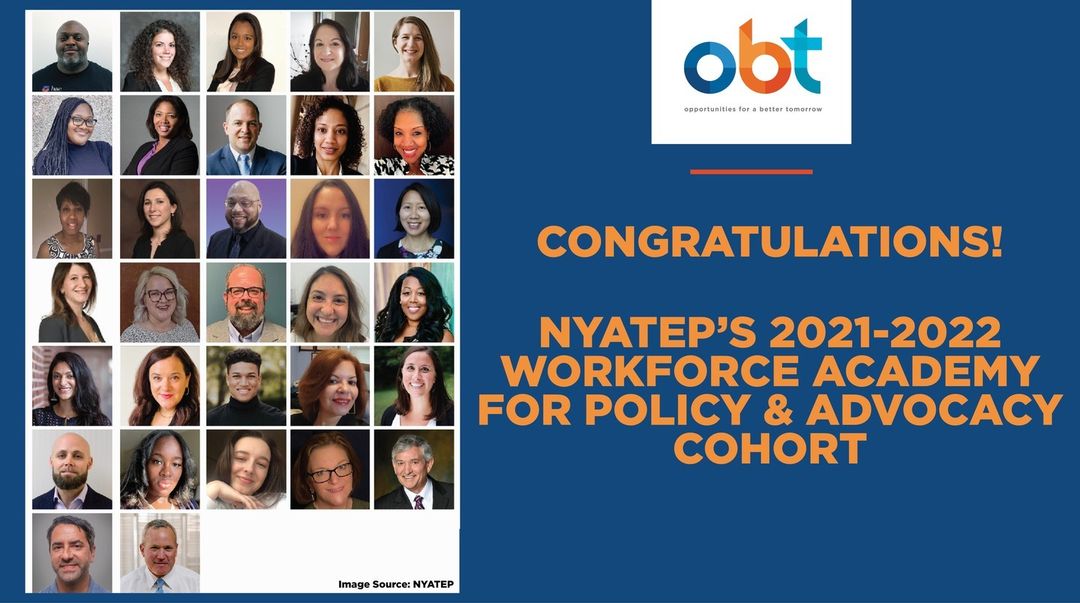The individuals working at human services nonprofits arguably have been the unsung heroes of New York City’s response to the coronavirus pandemic. Amid an unprecedented public health and economic crisis, the city’s human services organizations have provided vital, lifesaving services for the city’s most vulnerable communities—from delivering meals to homebound older adults and staffing homeless shelters to caring for the disabled and reaching survivors of domestic violence. But while nonprofits in every corner of the city have stepped up ably to address a massive surge in demand for safety net services, meeting the challenge has resulted in unexpected costs and revenue losses into the millions of dollars, jeopardizing their efforts, if not their very existence.
Nearly every organization we interviewed for this report is dealing with a sea of new operational costs—from setting up new IT systems to support remote work and virtual programs to purchasing protective equipment and hiring temporary workers while full-time staff are home sick. More than six of the two dozen nonprofit organizations we spoke with for this report say that they have already spent more than $1 million in unanticipated costs—all in less than two months since the start of the pandemic.
At the same time, human services organizations are also confronting sometimes staggering losses in revenue due to cancelled spring and summer fundraisers. Several of the nonprofits we spoke with say that their financial losses have already exceeded $1 million, with one predicting $3 million in revenue losses.
For example:
- The Catholic Charities of the Archdiocese of New York expects $3 million in revenue losses because of cancelled and postponed spring fundraising events alone.
- Henry Street Settlement anticipates $1.2 million in emergency outlay.
- Good Shepherd Services estimates $1 million in unanticipated costs above budget in the first month, and $100,000 to $150,000 for each additional week.
- New York Foundling will spend an extra $750,000 to $1 million every six weeks to maintain its shelter facilities and pay on-site employee hazard bonuses.
- CAMBA expects over $1 million in unanticipated costs, including $150,000 for cleaning services and $200,000 in IT costs.
- God’s Love We Deliver estimates over $1 million in unexpected costs related to early pandemic response.
- NYC Outward Bound Schools expects revenue losses in the current fiscal year “in excess of $1 million, and maybe closer to $1.5 million”—more than 20 percent of its yearly budget—due to cancelled spring programming and the cancellation of its May gala.
- Queens Community House anticipates $1.1 million in revenue losses just from the cancellation of the 17 summer camps it runs—and another $500,000 in lost funds from the cancellation of the SYEP program.
The combination of significant unanticipated costs and staggering revenue losses is creating an alarming financial fragility for the city’s human services nonprofits, a problem since many of these organizations will undoubtedly be needed even more in the months ahead as a wave of unemployed New Yorkers threatens to test the limits of the city’s safety net.
Despite all this, nonprofit leaders we spoke with fear that city and state agencies will not do enough to help them survive this crisis. In fact, there are some indications that New York’s government leaders may be magnifying the problem. To be sure, most of the nonprofit leaders we interviewed applauded the de Blasio administration for steps it took in the first weeks of the crisis to support the human services sector—including its pledge to be flexible with contracts already in place. But many nonprofits now fear that the city is backpedaling on that promise. Indeed, a letter sent out from the City Council in late April suggested that the city may no longer reimburse organizations for services already provided between late March and late April—a potentially devastating financial blow for many nonprofits. “That kind of retroactive cut is the most damaging way to achieve savings,” says Ben Thomases of Queens Community House.
Nonprofits also worry that state and city agencies will refuse to reimburse them for bonus payments they made to on-site workers during the past several weeks. Numerous organizations across the city instituted extra “incentive pay” to keep hourly and per-diem employees working at a time when the on-the-job risks have increased dramatically. But many in the sector are hearing that agencies will not compensate them. “If you’re asymptomatic, you’re obligated to come to work. But tell that to a young guy making $16 an hour who has two kids at home. He knows he’s putting himself at risk, so we feel like we have to do something,” says Bill Baccaglini, president and CEO of New York Foundling, a child welfare organization.
“When all the dust settles, it’s the provider community that’s going to be holding the bill for having fully accommodated all of the decisions both the city and state have made,” adds Baccaglini. “We’re hoping that everybody, at the end of the day, makes us whole.”
This report, based on interviews with leaders of over two dozen human services organizations based in the five boroughs, documents the unexpected costs, lost revenue, and new challenges facing New York’s nonprofit human services organizations. The report also provides specific recommendations as to what city and state policymakers should do right now.
Organizations have already taken a massive total financial hit
For many of the organizations we spoke to, disappearing revenues and multiplying costs related to the response are creating a new level of financial strain.
- Henry Street Settlement reports a total anticipated emergency outlay of “at least $1.2 million to date” as of April 7, including over $200,000 in bonuses to on-site employees and $35,000 in IT purchases, cleaning, and PPE. It’s also spending an additional $150,000 per month on new food purchasing and distribution costs. Henry Street is also anticipating lost revenue due to cancelling the remainder of its season at its performing and visual arts center, Abrons Art Center, and cancelling several space rental contracts.
- Good Shepherd Services estimates that it “will have had about a million dollars of unanticipated costs above budget” by the end of the first month of coronavirus-related closure, says executive director Michelle Yanche, adding that “it’ll be at least $100,000 to $150,000 for every week this goes on.”
- Queens Community House anticipates $1.1 million in revenue losses just from the cancellation of summer camps. “For us, that’s huge. We have 17 total COMPASS, SONYC, and Beacon programs,” says executive director Ben Thomases. In addition, the cancellation of the Summer Youth Employment Program “will mean more than $500,000 in losses” for the organization. And with 90 percent of the organization’s revenue coming from government contracts, further cuts could prove catastrophic. “I am expecting this to be devastating for Queens Community House,” says Thomases.
- The New York Foundling will incur an extra $750,000 to $1 million for every six weeks of shelter-in-place—just to maintain shelter facilities and pay on-site employee hazard bonuses—according to president and CEO Bill Baccaglini.
- JCCA estimates that total expenses per month have increased by $800,000, including $400,000 for hazard pay, and $400,000 for combined costs that include personal protective equipment, transportation, food, technology for staff and families, and cleaning vendors.
- CAMBA expects “well over one million dollars in unanticipated costs,” say Joanne M. Oplustil, president and CEO. “To meet the cash demands for all these expenditures, as well as to offset delays in reimbursements from our funders, we have had to leverage all the financial resources available to us, including taking on additional debt. These financing costs are not an allowable component of our overhead rate and we are forced to utilize our unrestricted funds. In addition, we’ve had to cancel two summer fundraisers, which are critical to our fund balance. If we have to cancel our annual gala it will mean a loss of hundreds of thousands of dollars.”
- God’s Love We Deliver, a medically tailored home-delivered meals provider, has “invested over a million dollars toward our early pandemic response, outside of normal expenses, and will certainly invest more as the crisis continues,” according to Alissa Wassung, director of policy and planning. God’s Love has also had to cancel its April and June signature fundraising events and is unsure how they will fill the losses.
- Community Access, which focuses on supportive housing, estimates significant revenue losses, including as much as $500,000 in lost Medicaid revenue due to program suspensions and changes to service delivery, according to CEO Cal Hedigan. The nonprofit also postponed its gala until October, resulting in an estimated “$400,000 loss in this fiscal year.” Hedigan reports that Community Access also has “spent $50,000 on supplies and estimate $100,000 per month on pay appreciation” for staff.
- The Osborne Association, which supports people affected by the criminal justice system, had to cancel a May fundraiser projected to net about $800,000. “We are trying to raise private money, but we cannot make up for a cancelled major event,” says Elizabeth Gaynes, president and CEO.
- NYC Outward Bound Schools expects revenue losses in the current fiscal year ending June 30 “in excess of $1 million, and maybe closer to $1.5 million”—more than 20 percent of their yearly budget—due to cancelled spring programming and the move from its regular May gala to online fundraising, according to president and CEO Richard Stopol.
- Urban Pathways, which provides services for the homeless, expects a 40 percent decrease in event revenue now that its annual May gala will be held online; and a 20 percent drop in private donations in fiscal year 2021 due to the unstable financial market.
- Catholic Charities of the Archdiocese of New York has had to cancel its major gala and a golf outing scheduled for May, and estimate a total of $3 million lost because of cancelled and postponed events, according to Monsignor Kevin Sullivan, the organization’s executive director.
- Opportunities for a Better Tomorrow (OBT), which focuses on job training and employment services, is facing over $400,000 in potential losses. OBT has cancelled all spring fundraising events—at a cost of about $50,000—and has had to postpone at least one of its programs at a potential loss of about $130,000 for this fiscal year. Additionally, the organization is facing losses of $300,000 that includes potentially unreimbursed city discretionary contracts, an unregistered city discretionary contract, and a New York State contract.
Original Article: https://nycfuture.org/research/essential-yet-vulnerable



